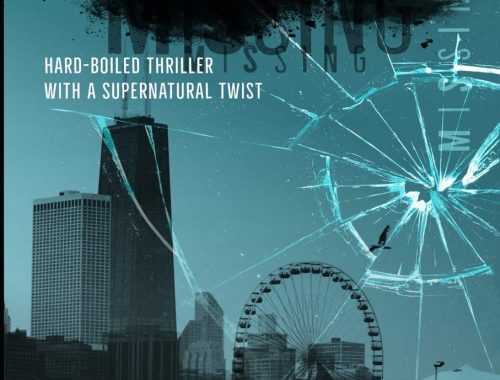JK Haru is to Isekai What The Iron Dream is to Science Fiction
In 1972, Norman Spinrad wrote a piece of work titled The Iron Dream. The concept, on its face, was simple enough: “What if Hitler, instead of starting World War II, emigrated to the United States and became a science fiction author?” The story in practice, however, was far different: in embracing certain tropes common with Nazi ideology, it crafted a a story-within-a-story titled Lord of the Swastika that showed the reader how much of the popular science fiction of its day was incredibly problematic. Taken out of the context of its ideology, it could easily be compared to almost any other science fiction work of its time (and indeed even today) with it’s pro-fascist narrative, it’s overpowered take-action main character, evil races to be subdued and expansionism to be had. It’s a solid story, but it’s also one that shows fans of the genre just how awful many of its popular tropes are in practice.
Ko Hirotori’s JK Haru is a Sex Worker in Another World could easily be mistaken for another wish-fulfillment “another world” with a focus on sexual encounters and fantasy tropes. It is not, and anyone reading the story hoping for it to be will be at best disappointed and at worst unsettled. JK Haru is exceptional commentary on how poorly women are treated not only in the isekai genre, but also how sex workers in real life are perceived in reality. Don’t let the contents fool you: this story is intended to be dark, despite how optimistic the main character may come off.
Disclaimer: the above advertisement is an affiliate link. Making a purchase from this link may benefit the website.
To note, I’ve read the novel, as translated by Emily Balistrieri. There is a manga version of this story which as of this writing is up to Chapter 3; I’ve browsed through it, and it appears to have much of the same content as the novel, although there’s less inner monologue of the main character which in some ways downplays the seriousness of what’s going on. Also, the visual representation of some of the scenarios frankly blunts the horror of them, which to me personally is a detraction.
To begin, one should consider the title. The JK portion of the title isn’t an acronym or a set of initials. It’s a reference to “joshi kosei business” – the paying of high school girls in Japan for companionship under the guise of “massages” or “fortune telling.” The main character, we can surmise from the title, is a high school girl who has participated in the paid dating scene.
The set-up for the story seems simple enough, perhaps even overplayed: the main character is about to be hit by a truck. Her classmate jumps in to save her (and perhaps ensures her death by accident). The two are intercepted by a God who takes a liking to them, and so allows them to continue to live in another world. This world is a very average fantasy setting with a Demon Lord hellbent on destroying humanity and heroes with gamified leveling and stat systems looking to save the day. In this world, women have almost no power or influence, however, and with one very specific exception cannot be adventurers. To this end, Haru does the only thing she knows how to do to survive: she gets a job at a brothel. She starts as one of the junior employees, worth a mere 70 rubers a night. Attempting to make the most out of things, she does the best she can to be the most desired woman in the brothel.
This is in complete contrast to the main male lead, Chiba, who is given three seemingly overpowered abilities: he gains experience at 16 times the rate of the normal adventurer, he is immune to status effects, and magical attacks don’t harm him. He’s also a man, which means in this world he can adventure like the best despite being portrayed as a less-than-average high school aged individual with the charm and introspective of a poorly prepared popcorn ceiling.
In many portal-world or reincarnation stories, the main male lead would get all the ladies, who would fawn over him in all of his glory and they’d all live happily ever after. In the world this story takes place, the price of women being subservient is shown first-hand. In the bedroom, men use the main character in some of the most cruel ways. Outside, the main character is discouraged from travelling alone or eating without a male companion; it becomes a point of success when her and a friend start regularly eating by themselves at a local meat store. Meanwhile, the main character not only comes to terms with her role in this world even as she tries to conquer it and make it her own. She’s dedicated, witty, and a lot of the “humor” of this “dark humor” story comes from the way she chooses to interpret events.
This novel does a great job of humanizing (and when needed, dehumanizing) the individuals that Haru interacts with. Some of the characters met along the way become surprisingly sympathetic, like the nicknamed Sumo, an exceptionally obese and shy man who visits Haru each day for a spell, paying the 10 rubers just to speak with her for 30 minutes. Several of the women Haru works with are very well fleshed out, and it’s interesting to see how they overcome even in the face of events that would cause the average individual despair. The most ferocious monsters aren’t those in the woods looking to destroy humanity, we learn, but the men who have power and the soldiers who can do whatever they want because of their station.
There is a lot of sex in this novel. Some of it, like the scenario with the minstrel whose kink is getting women to play an instrument for him, are played for absurdity. Most, however, seem like very standard hentai/erotica fair but are almost always played with some sense of gravitas to them. In no small part thanks to the inner monologue of the main character, we see these staged scenes as what they are: entertainment for her clients, and another job for her. Sometimes she is able to get on top (perhaps literally) and take charge of her client and the situation. Often, she is at their mercy. As the book progresses, many of these scenes become exceptionally dark and triggering. Individuals hoping for erotica for erotica’s sake will not just be disappointed, but turned off. This is a bit of bait and switch here; the title suggests this is a story of a sex worker, and it is, but the focus is on her and what she’s going through and not the encounters themselves. I will say, despite this, it has perhaps the most heartwarming if not noteworthy scene involving sex with an exceptionally obese man I’ve ever read in any sort of story in my life.
Ultimately, I’d argue anyone who reads this novel is going to walk away wondering just how realistic other novels in its genre are, and that may be part of the point. The story does end on a bit of an open note that suggests that better days may be on the horizon, although it doesn’t share how those days might actually be coming. As spoiler free as possible, the main character does come to terms with her new found place in the world, and her true strength not only as a woman and as a deceased individual starting a new life but as a person in some ways empowered by the very people who have tried to push her down. In that, this is perhaps the least “Japanese anime” light novel I’ve been made aware of. It also has surprisingly accurate portrayal of sex work, taken away from the fetishization and shown in the light of often unpleasant customer service work.
Overall, I’d argue fans of the isekai genre should read this novel so they can come away thinking of how poorly those stories tend to treat their female casts; those who normally don’t care for the genre may find this story’s sharp main character and challenging of standard tropes to be just what they need to enjoy such a work.


